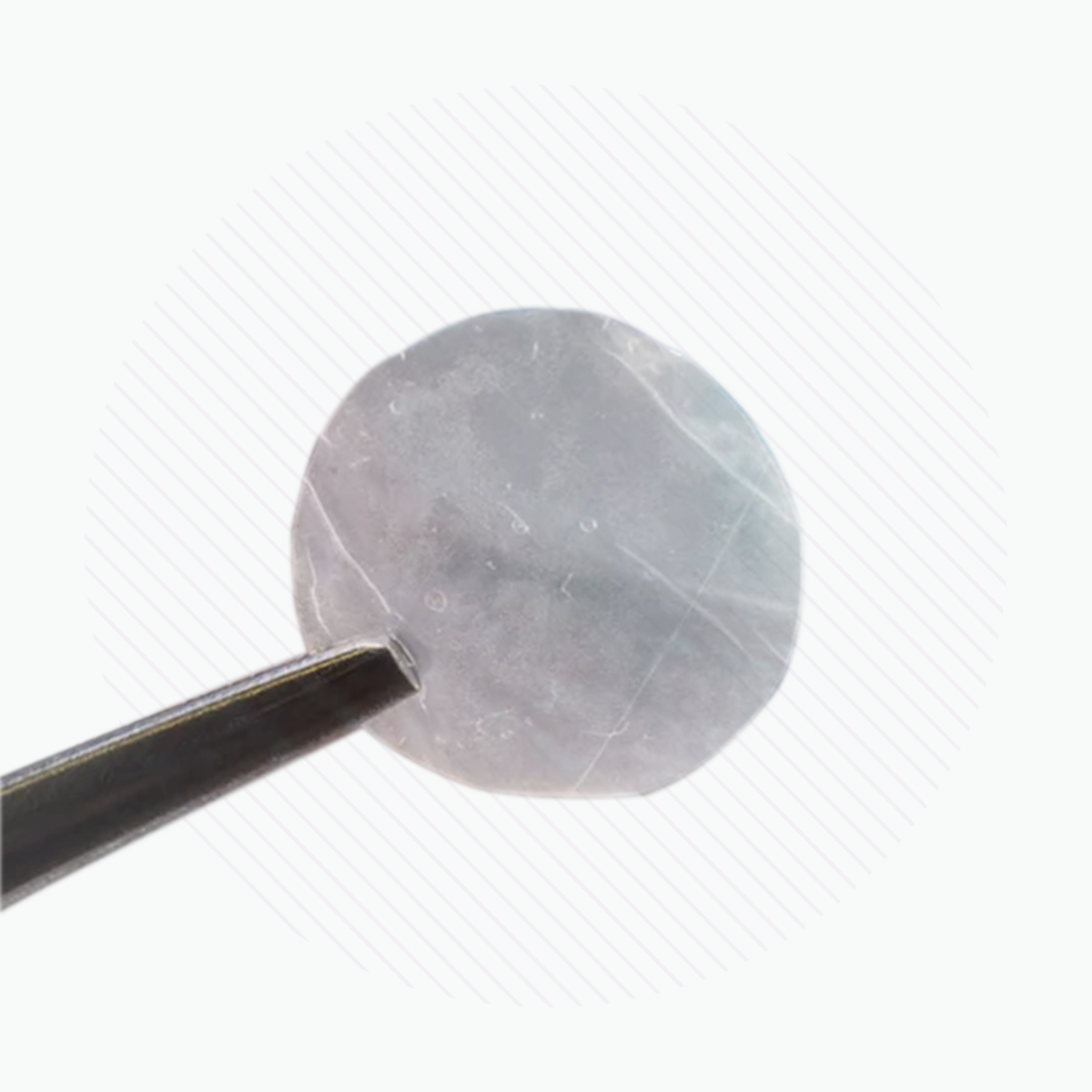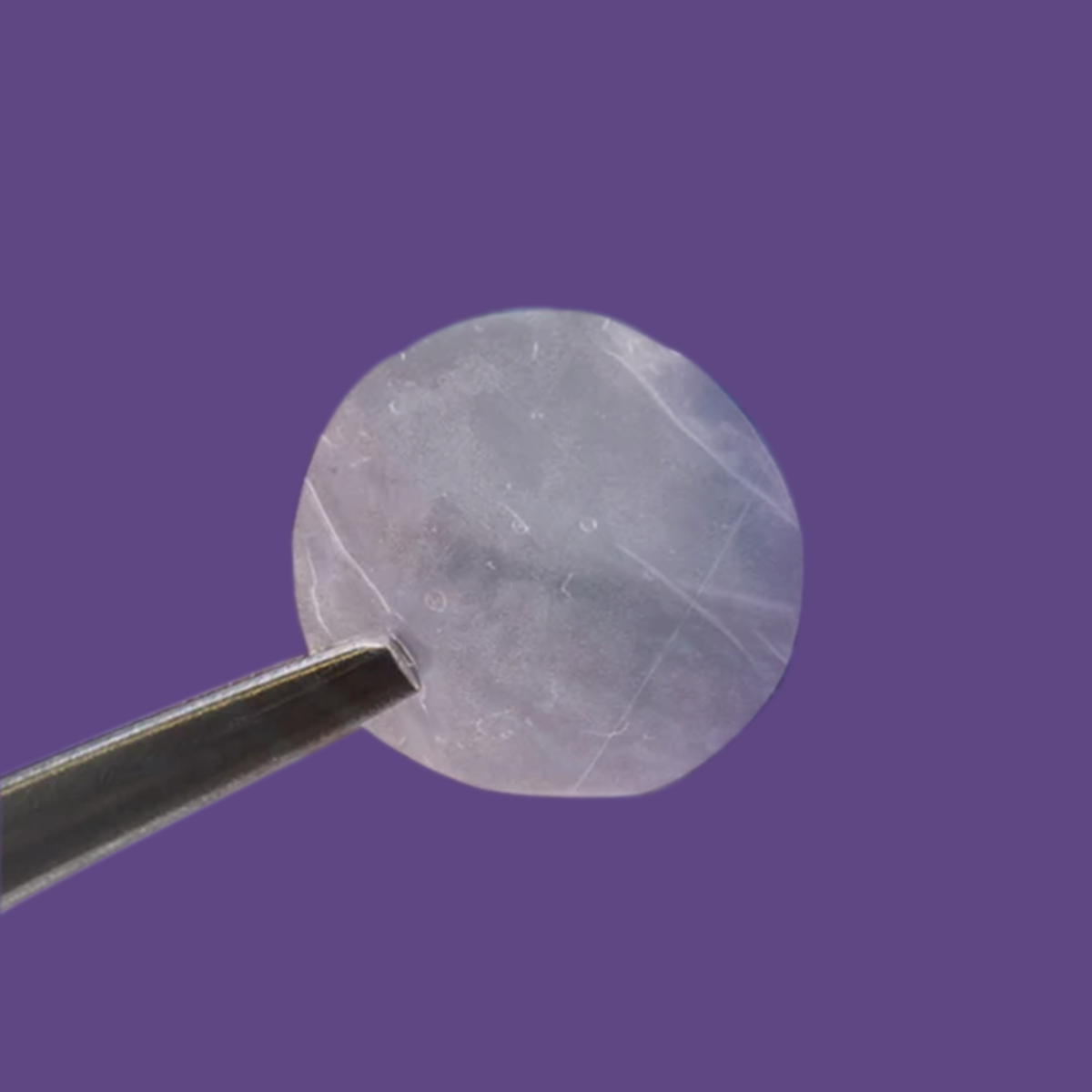Description
Eclipse is a dehydrated amniotic membrane allograft disc used to improve surgical outcomes including procedures in Ophthalmology and Optometry.
Eclipse is a precision crafted single layer membrane for use in mild to severe conditions. A thicker single layer provides the same growth factors as dual layers while retaining the patient comfort of single layer membranes.
Eclipse has the following advantages:
• Eclipse is air-dried not freeze-dried
• Eclipse can be kept at room temperatures, eliminating the need for freezer
• Suitable for immediate use off the shelf
• Hydrates rapidly
• Adheres to the ocular surface
• Sterilized with gamma radiation to SAL 10-6 in accordance with ISO 11137
• Textured surface facilitates ease of handling and placement
• Symmetric graft allows either side to be placed in contact with ocular surface
• Can be placed in either direction (multi-directional graft)
• Has a micron thickness of 30-35 Microns
• Tackier stromal surface for better adherence
• Only 9 units of KiloGray used to sterilize the grafts
• Low doses of radiation retainin more growth factors
• New foil packaging offers a 5-year shelf life
• More growth factors and cytokines to survive the sterilization process
Eclipse Single Layer Diameters
Eclipse 5 mm Diameter
Eclipse 8 mm Diameter
Eclipse 10mm Diameter
Eclipse 12mm Diameter
Eclipse 14mm Diameter
Eclipse 16mm Diameter
ECLIPSE POST-PROCEDURE BEST PRACTICES
Now that you’ve treated your patient with Eclipse Amniotic Membrane, it’s important to follow the below post-procedure steps to ensure the best patient outcome.
After placing Eclipse, select a high dK contact lens that is a little flatter than the lens normally used to fit the patient for normal wear. For example, if a corneal curvature suggests the patient requires an 8.6 lens, the resultant curvature with the membrane will be a bit flatter, so you may go with a high dK 8.7 lens.
Instruct the patient to use non-preserved lubricant drops every 3 to 4 hours while awake. In addition, prescribe either a non-viscous antibiotic drop 2-3 times per day or a combination antibiotic steroid twice a day, depending on which is appropriate for the given case.
Have a staff member contact the patient the following morning to ask how he/she is doing. If the patient reports mild to moderate blur and a mild foreign body sensation, reassure him/her that this is normal.
If the patient reports redness, pain, swelling or photophobia, encourage the patient to come into your practice the same day. Usually these symptoms are due to mild hypoxia related to the contact lens becoming dry and/or tight.
If patient is doing well, schedule an appointment for day 3. At that time, look to see if the membrane is fully broken down. If this is the case, remove the bandage lens and initiate a continuous regimen. If further breakdown of the membrane is needed, send the patient home and schedule another appointment in 2-3 days to reassess.
ECLIPSE IFU
Maintain allograft in a dry environment at room temperature
(18°C/64°F to 34°C/93°F)
No refrigeration is necessary
Apply dry or wet to ocular surface
Apply either graft surface to the wound site; Symmetric design removes stromal layer/epithelial layer facing requirements
Graft may be manipulated in place and/or repositioned during surgery
Preparation and Application
Open the product package and remove peel-pouch containing the amnion graft.
Open outer pouch and place inner pouch onto the sterile field.
Wait to open inner package until ready to place graft onto wound site.
Before Application peel open or trim through inner pouch to expose the graft.
Remove graft using sterile gloves or smooth tip forceps.
Apply the graft over the intended site.
If necessary, a graft may be hydrated prior to applying to the surgical site
Sutures or adhesives may be used if necessary.




